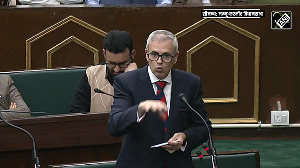 South Asian countries, led by India, registered a rapid economic growth in 2010 and their unemployment rates dipped marginally from the previous year, says the latest annual Global Employment Trends (GET) report of the International Labour Organisation (ILO).
South Asian countries, led by India, registered a rapid economic growth in 2010 and their unemployment rates dipped marginally from the previous year, says the latest annual Global Employment Trends (GET) report of the International Labour Organisation (ILO). Globally, however, it was a bad year for jobs for the third successive year.
The annual employment trends survey points to a highly differentiated recovery in labour markets, with persistently high levels of unemployment in developed countries and employment growth coupled with continuing high levels of vulnerable employment and working poverty in developing regions.
These trends set a stark contrast, with the recovery seen in several key macroeconomic indicators: Global GDP, private consumption, investment, and global trade and equity markets all recovered in 2010, surpassing pre-crisis levels, ILO said in its statement on the report.
The report has called for expansion of wage employment and social safety nets and cited India's National Rural Employment Guarantee Scheme as a model for reducing the region's large work deficits, besides asking for less dependence on exports and reorientation of growth toward domestic consumption.
Increasing social protection is crucial for enhancing economic security and encouraging consumption, it said in its policy recommendations.
"Economic growth in the region as a whole declined from 9.1 per cent in 2007 to 5.9 per cent in 2008 and to 5.5 per cent in 2009. It is estimated that the region's economy grew by 8.9 per cent in 2010, led by India, which registered rapid growth of 9.7 per cent in 2010. The Maldives, Nepal and Pakistan are lagging,'' it said.
The region's unemployment rate has been fairly stable in recent years, including the economic crisis, ranging from 4.3 per cent to 4.5 per cent between 2007 and 2010.
Globally, unemployment remained at record high for the third straight year since the start of the crisis, ILO said, waring that weak recovery in jobs was likely to continue in 2011, especially in developed economies.










 © 2025
© 2025